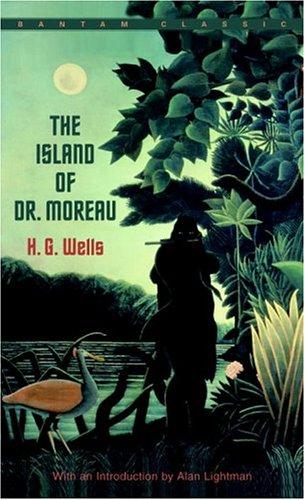Beabook30 reviewed La isla del doctor Moreau by H. G. Wells
Lectura incómoda
4 stars
Te pica un mosquito Tigre y te rascas con saña. No es bueno hacerlo pero da gustillo un rato. Es un dolor gustoso, pero un dolor al fin y al cabo. Este libro es igual. Eso es bueno? Lo empecé y me fuí "rascando" mientras lo escuchaba.
Por algunas alusiones que hace deduzco que el autor leyó sobre un caso famoso que me interesa desde hace años. Un hombre llamado Phineas Gage acabó con una barra que le cruzó la cabeza y llegó a varios metros de distancia. Con el agujero de entrada y salida (y pérdida de masa cerebral) sobrevivió 12 años y originó avances en el estudio del funcionamiento del cerebro y el comportamiento humano (mirar San Google si os interesa el tema y hay documentales muy buenos también).
Un náufrago llega a una isla donde un doctor realiza experimentos espeluznantes con animales. En el Dr. …
Te pica un mosquito Tigre y te rascas con saña. No es bueno hacerlo pero da gustillo un rato. Es un dolor gustoso, pero un dolor al fin y al cabo. Este libro es igual. Eso es bueno? Lo empecé y me fuí "rascando" mientras lo escuchaba.
Por algunas alusiones que hace deduzco que el autor leyó sobre un caso famoso que me interesa desde hace años. Un hombre llamado Phineas Gage acabó con una barra que le cruzó la cabeza y llegó a varios metros de distancia. Con el agujero de entrada y salida (y pérdida de masa cerebral) sobrevivió 12 años y originó avances en el estudio del funcionamiento del cerebro y el comportamiento humano (mirar San Google si os interesa el tema y hay documentales muy buenos también).
Un náufrago llega a una isla donde un doctor realiza experimentos espeluznantes con animales. En el Dr. Moreau ni siquiera veo el intento de aparentar que busca curar enfermedades o mejorar la calidad de vida de seres humanos (o animales). Veo a un hombre convencido de su propia superioridad moral e intelectual sobre todos los demás. Considera que los animales sienten dolor físico porque son inferiores, débiles, inútiles. Es un megalómano, cree que es Dios y esa Isla es su Mundo, su creación. Ya dije que es una lectura incómoda, donde no salvaría a nadie (de los humanos). En varias ocasiones los animales parecen atrapados en una secta, manipulados mentalmente todos los días de su vida. Las descripciones de los experimentos son tan frías y creíbles que resultan muy inquietantes. Wells sabía lo que hacía, imagino que por sus propios estudios (era doctor en biología). le preocupaba la dirección hacia la que iba la Humanidad (ya se veía en "La Máquina del tiempo") y la Ciencia. No parecía muy optimista sobre nuestro futuro, diría que era un visionario. Si conociendo los famosos experimentos del Dr Mengele, el uso de armas químicas, la bomba atómica, la clonación... aún resulta incómodo leer este libro no acabo de hacerme la idea de lo que sería cuando se publicó. Es una lectura muy recomendable, seguiré rascándome y buscaré otra más relajante.






